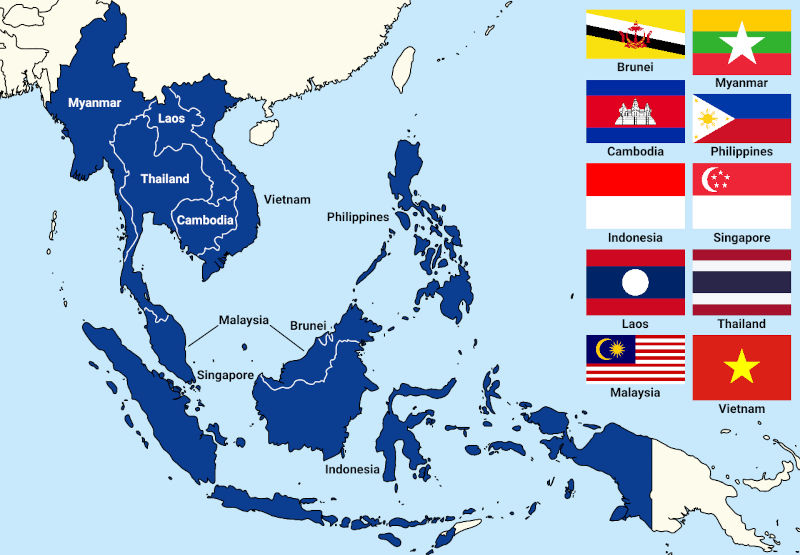Closer ASEAN ties can help China counter US militarisation of region
May 24, 2025
However, Beijing’s foreign policy and economic agenda are at cross purposes, with nations in the bloc suffering from chronic trade deficits.
President Xi Jinping toured Southeast Asia last month to drum up support from such countries as Vietnam, Malaysia and Cambodia in the face of Washington’s tariff war.
The regional tour was meant to showcase China as a force for stability, free trade and co-operation. By contrast, Donald Trump’s “America first” agenda was portrayed as their common threat. But Beijing’s foreign policy and trade agenda seem to be at cross purposes.
The ASEAN economies, coupled with the Chinese behemoth, remains the most compelling growth engine in the world economy today. They can grow together, which in itself creates an economic barrier to the American attempt at militarising the Asia-Pacific.
At the moment, though, faced with economic slowdown, China has been ramping up exports, including to Southeast Asia, thus exacerbating a longstanding trade imbalance against Asean economies.
But China’s security, both economic and national, ultimately depends on the goodwill of its neighbours, especially those within ASEAN; well, the Philippines is a different story.
Given the mostly non-ideological relations among the ASEAN member states, and their willingness to sit on the fence in the bitter rivalry between China and the United States, there is much that Beijing can do to improve its relations.
This may mean sacrificing some short-term economic benefits such as by changing from a state-sponsored export strategy to opening up the domestic economy to friendly ASEAN states. More importantly, China can commit a lot more foreign investments in ASEAN economies, for example, in the apparel sector which collectively employs more than 7.5 million workers in Vietnam, Indonesia and Cambodia. At the moment, the domestic Chinese apparel sector is in direct competition with them.
Thailand has a vibrant automotive industry from Japanese carmakers’ investments. China’s world-beating electric vehicles industry can afford to invest in Thailand, as the country has repeatedly extended invitations already.
Manufacturing accounts for an average 20% of GDP among ASEAN economies. An open and friendly Chinese economy can create a boom for all of them, perhaps even the Philippines, which is now increasingly militarised by Washington.
But weak domestic demand in China has meant a hyperdrive towards exports. Countries in Latin America, Europe and North America, not just the US, are complaining about the Chinese offloading. Some of that may actually benefit their consumers, as many of them clearly prefer Chinese products.
But ASEAN is a different proposition because it is China’s neighbourhood and their strategic and economic interests are closely tied to those of Beijing. For example, Thailand’s trade deficit with China jumped from US$20 billion in 2020 to US$36.6 billion in 2023 and Malaysia’s from US$3 billion to US$14 billion over the same period.
Malaysian Prime Minister Anwar Ibrahim has clearly tilted towards Beijing since he took office in 2022. During Anwar’s visit to Beijing in November, the communications director for his Parti Keadilan Rakyat made that point clear. “Under the circumstances of the China-US trade war and the decoupling of global supply chains, China needs friends,” he said. “ASEAN-China is an important bloc for Beijing to have a mutual friendly relationship.”
It is the same story with Vietnam. China’s share of the country’s total trade has grown steadily, as two-way trade revenue grew from US$126.8 billion in 2020 and US$205 billion last year, accounting for nearly 40% of Vietnam’s GDP. However, Vietnam has faced a chronic trade deficit with China, having reached US$82.8 billion last year.
Meanwhile, when Rodrigo Duterte was in power, the Philippines tilted decisively towards China. But he received little in terms of security and economic benefits. That was enough for his successor Ferdinand Marcos Jnr to tilt back towards Washington, turning his country effectively into a forward military base in the event of a war between the two superpowers.
Beijing must not repeat that same mistake again.
Republished from the South China Morning Post, 21 May 2025


